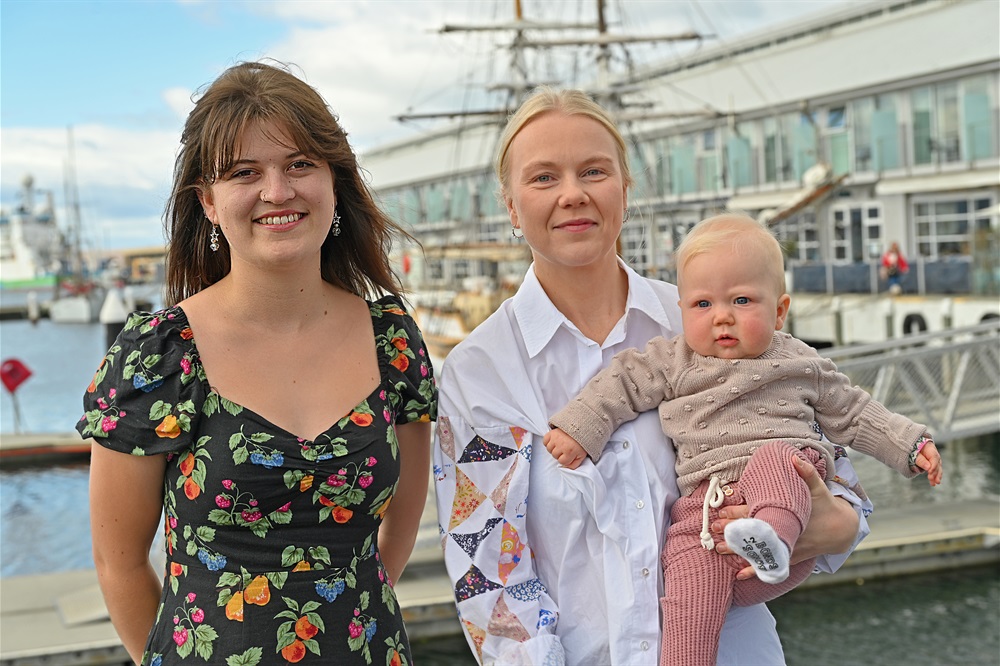I cast my gaze at the group around me. It’s not often that you get 33 strangers together to explore existential and emotionally charged topics. But this wasn’t just any old group. These 33 strangers had offered up two precious weekends to take part in the City of Hobart’s citizens assembly on climate change. At a pivotal moment in their climate strategy development, the Council invited us - a representative cross-section of Hobart’s citizens - to contribute to this collective and consequential plan.
The indoor fans hummed along to the birdsong as the sun beat down on the patio tiling. Every so often a curious bee would make its way inside to hover around the tables, spectating. The Sustainability Learning Centre, nestled in the bush in Mt Nelson, would be our base for four full days across February and March. A moderate fire risk was announced, the potential irony of evacuating a climate assembly not lost on us.
Our vibrant independent facilitators guided us through what to expect from the carefully designed process. Their early instruction advised us that “the word ‘discussion’ has shared origins with ‘percussion’”, and we were expected to do more than simply “make noise” [2]. We were there to deliberate, and deliberate we did.
We heard from climate communicators, conservationists, a Tasmanian aboriginal leader, waste experts, scientists, and systems thinkers. We were offered moments of hope, through initiatives and possibilities… all within reach. And we were offered moments to reflect deeply.
Unsurprisingly, some voices were louder than others. But the breakout sessions gave those with quieter words a space to be heard. Everyone engaged. Everyone cared. Some voiced carefully considered thoughts about strategic inclusivity. Others raised personal bugbears (bus stops anyone?). We all had an opportunity to share.
As a living expression of democracy, the group had to grapple with different perspectives, priorities, and preferences. But a sign of alignment emerged, when the majority indicated they wanted the Council to adopt a ‘very high’ level of ambition for the strategy. This shared aspiration ignited motivation for the days ahead.
Over the two sunny weekends, we listened, mused, imagined, scribbled, post-it-ed, ideated, strung string, shared, and advised. Eventually, we arrived at a shortlist of 10 priority recommendations, which were presented to the Lord Mayor in a bow-tied ceremonial scroll.
These recommendations represented not impossible dreams, but achievable things.
A city where green and blue spaces are connected as beautiful natural corridors to entice citizens into safe active transport. A city that supports households and businesses to rapidly electrify. A city that cares for priority communities in times of crisis. A city that leads in climate action.
A sense of collective achievement validated the decision to be involved. For me, signing up in November was a daunting thought. With a 5-month-old baby, I couldn’t imagine being able to spend two weekends inaccessible to her. But after being given confidence from the Council staff that she could drop in for feeds throughout the day, my mind was made up. The assembly marked my emergence from the first-time-mum bubble… where necessity dictates that all consciousness is directed towards nappies, feeding and sleep. I untangled my brain from the web of new-parenting, dusted off my capacity for consideration, and embarked on a two-weekend journey that filled me with cautious optimism.
My baby was initially the reason I thought I couldn’t be involved, yet ultimately she was the reason I had to be.
It’s said that “‘hope’ is a verb with its sleeves rolled up” [3]. While offering a lifeline, it asks for effort, perseverance, commitment. So how can one be hopeful about the future, when the frightening realities of change feature so prominently in climate coverage? Public participation. The value of this process was a shared sentiment, evident from the parting request of “can we do this again for the housing crisis?”.
Hobartians want to engage in these important issues. In a space that is often filled with political noise and alarming facts, it was refreshing to be part of a solution.
Grateful for the leap of faith the Council took by inviting us into this process, it’s now up to them to take this forward. To act on our recommendations and finalise the strategy into something that the people of Hobart can get behind. It’s really just the beginning.

Hobart Climate Assembly participants, Grace Elliot and Emma Hoksbergen.
To me, climate is about family, about community, about global citizenship. What we owe to those facing the brunt of changes today, and what we owe to future generations. This act of public participation tapped into these values. We were a group of 33. No longer strangers, but friends. My community.
My now nine-month-old baby met her great-grandfather two months ago. He called her a “little angel”. Then he passed away. I can only hope my final words to my great-grandchildren will be filled with such contentment. But at least now, if they ask me what I did, I will have an answer. I will tell them I played a small but active role in helping to make our city a more climate-ready place.
[1] Quote from poem ‘what did you do when you knew’ by Drew Dellinger, shared at the assembly by climate scientist and educator, Dr Mel Fitzpatrick
[2] Instruction from our inspired facilitator, Max Hardy
[3] Quote from David Orr, academic and author
Subscribe to Hobart News
Get a monthly wrap of our top stories straight to your inbox.